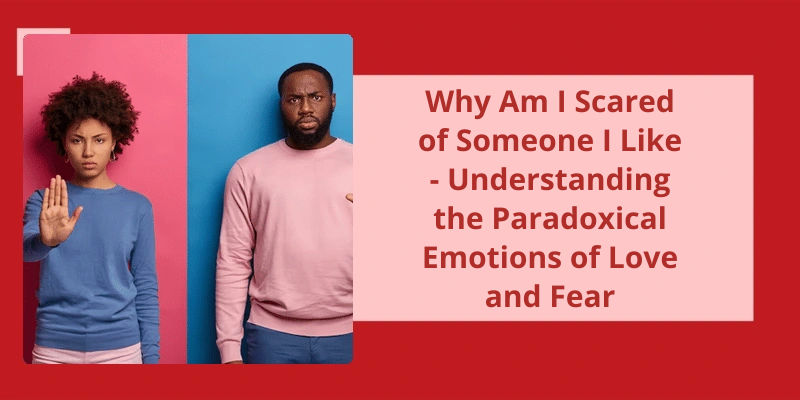As the day draws to a close and the curtains are drawn, a sense of calmness and relaxation begins to seep in. It's the time where one prepares to bid farewell to the day that’s passed and brace themselves for the day that lies ahead. With weary eyes and a tired body, one finds solace in the familiar embrace of their bed. For some, it's just a mundane activity, an everyday routine of sorts. But for others, it's a moment of sheer peace and contentment, a reward for another day's hard work, or an escape from the daily chaos. The feeling of getting into bed can be a plethora of emotions, unique to each individual, but the common denominator amongst them all is the simplicity and comfort that comes with it.
Why Do I Feel Like Someone Is Touching Me at Night?
These tactile hallucinations can be extremely frightening. You may be lying in bed, unable to move, and feel someone or something touching your body. It can be a very intense experience that feels very real. People experiencing tactile hallucinations may be convinced that someone is in the room with them, but they’re unable to wake themselves up or move their body.
There are several theories about what causes tactile hallucinations, and some people may be more prone to them than others. One theory is that it’s related to sleep paralysis, which is a state in which the body is temporarily paralyzed during sleep. During sleep paralysis, the brain is still active, but the body is unable to move. This can lead to a sense of panic or fear, which can exacerbate tactile hallucinations.
People who’re experiencing a high level of anxiety or stress may be more likely to experience these hallucinations. The fear and panic associated with these hallucinations can make it more difficult to fall asleep, leading to a vicious cycle.
For example, some people who take certain types of antidepressants or antipsychotic medications may experience tactile hallucinations as a side effect. Similarly, people who abuse drugs may also experience these hallucinations, as drugs can affect the brains ability to perceive reality.
They can help you determine the underlying cause of your hallucinations and provide treatment options that can help alleviate your symptoms. Some treatment options include therapy, medication, and lifestyle changes such as stress reduction techniques or improved sleep hygiene.
Can Sleep Disorders Such as Sleep Apnea or Insomnia Contribute to Tactile Hallucinations?
There’s some evidence to suggest that sleep disorders, such as sleep apnea and insomnia, may be related to the development of tactile hallucinations.
As we drift off to sleep, many of us have experienced a sudden movement of our body, causing us to wake up feeling startled. This physiological phenomenon, known as a hypnic jerk, is a natural occurrence before entering deeper stages of sleep. In this article, we’ll explore the reasons behind this strange sensation and what can be done to alleviate it.
Why Do I Get a Weird Feeling in My Body When I’m About to Sleep?
The funny feeling that we experience when were about to fall asleep is actually quite common. It’s a sensation often referred to as a hypnic jerk and occurs during the transitional state between wakefulness and sleep. This strange feeling in our bodies can happen suddenly, causing our muscles to contract involuntarily, which results in a feeling of jumping or a brief physical jolt. For some people, this can be so sudden and strong that it wakes them up for a short moment.
While we may find the sensation of a hypnic jerk a little odd, it’s completely normal and quite common. It’s thought to occur due to a sudden change in muscle tone that happens as our bodies relax and prepare for sleep. Although we often don’t notice other changes that are happening in our bodies, it’s unlikely that weren’t feeling any other effects of entering the sleep phase.
Interestingly, while researchers arent entirely sure why some people experience hypnic jerks more often than others, there’s a study that suggests anxiety and stress can be contributing factors. They suggest that these feelings can cause our muscles to become overly tense, making them more likely to spasm involuntarily. They hypothesize that it may have served as a protective mechanism to prevent humans from falling out of trees while sleeping.
Source: Why do some people get a strange ‘big/small’ feeling when …
The feeling of someone sitting on your chest can be a frightening experience, and it’s often associated with another type of hallucination known as incubus hallucinations. These types of hallucinations can cause a person to feel they’re suffocating or that something is pressing on their chest. However, there are other types of hallucinations that can cause similar sensations in the body, including vestibular-motor hallucinations. In this article, we’ll explore more about why these hallucinations occur, what they feel like, and how to manage them.
Why Do I Feel Like Someone Is Sitting on My Chest When I Sleep?
Have you ever woken up in the middle of the night feeling like someone or something is sitting on your chest? If so, you may have experienced what’s known as an incubus hallucination. This type of hallucination can be quite frightening, as it can make the person feel like they’re suffocating or unable to breathe. Although it isn’t entirely clear what causes incubus hallucinations, some researchers have suggested that they may be related to sleep paralysis, a condition in which the body is temporarily paralyzed and unable to move during sleep.
Another type of hallucination that can cause a feeling of pressure on the chest is known as a vestibular-motor hallucination. This type of hallucination involves imagined sensations in the body, such as movement or feelings of floating. People who experience vestibular-motor hallucinations may also report feelings of bliss or euphoria, as well as out-of-body experiences or other unusual sensations.
While the exact causes of incubus and vestibular-motor hallucinations aren’t fully understood, researchers have proposed several theories. Some have suggested that they may be related to changes in brain chemistry or other neurological factors, while others have suggested that they may be related to psychological or emotional factors such as stress, anxiety, or trauma.
Despite the frightening nature of these hallucinations, they aren’t generally considered to be harmful. Some people may find it helpful to seek professional help or to try relaxation techniques, such as meditation or deep breathing, to help cope with their anxiety and stress.
Ultimately, if you experience feelings of pressure on your chest or other unusual sensations during sleep, it’s important to seek help from a medical professional. While hallucinations aren’t generally considered dangerous, they can sometimes accompany other medical conditions such as sleep apnea or narcolepsy, which can have serious health consequences if left untreated. By working with a healthcare provider, you can find the support and treatment you need to get a good nights sleep and feel your best.
Waking up and seeing someone in your room can be a frightening experience, but it’s often a result of a hypnopompic hallucination. This state of consciousness occurs during the transition from sleep to wakefulness, and can involve visual or sensory experiences that aren’t actually present. While it can be a disorienting experience, it’s important to understand that these hallucinations are a normal occurrence and often fade quickly upon fully waking up.
What Does It Mean When You Wake Up and See Someone in Your Room?
Waking up to see someone in your room can be a terrifying experience. It’s natural to feel a sense of panic, fear and confusion if you suddenly wake up and see a stranger in your personal space. While it isn’t an uncommon occurrence, it’s important to understand that it isn’t a supernatural phenomenon. In most cases, this is related to hypnopompic hallucinations or the state of consciousness leading out of sleep.
Hypnopompic hallucinations are often visual and involve seeing moving shapes, colors or images of animals or people. These hallucinations occur as a person is waking up and aren’t usually considered to be a serious medical condition.
Sleep paralysis is a condition where a person is unable to move or speak upon waking up or falling asleep. It’s a temporary paralysis of the body and often lasts only a few minutes. While it can be a frightening experience, it’s also not considered to be a serious medical condition.
If you wake up and see someone in your room, it’s important to remain calm and assess the situation. It’s possible that the person in your room is someone you know, such as a roommate or family member. If you’re unsure of who the person is, it’s important to take steps to ensure your safety, such as calling out for help or leaving the room if possible.
It’s important to stay calm and assess the situation to determine if there’s any immediate danger.
How to Minimize the Occurrence of Hypnopompic Hallucinations and Sleep Paralysis
- Avoiding caffeine, nicotine, and alcohol before bedtime
- Establishing a regular sleep schedule
- Reducing stress levels
- Creating a relaxing bedtime routine
- Sleeping in a cool and dark environment
- Avoiding sleeping on your back
- Trying relaxation techniques such as yoga or meditation
- Consulting a healthcare professional if necessary
Conclusion
It’s a moment that’s often relished by many as a time for winding down, after a long day. However, the level of satisfaction one derives from this experience may vary from person to person, depending on factors such as the quality of the bed, the bedding material, and the individual's mood at the time. Nevertheless, irrespective of these factors, it’s an experience that we all seek and cherish, as it provides us with the much-needed respite from the demands of our everyday lives. Ultimately, what we feel when we get into bed boils down to the simple, but powerful notion of comfort, which can be derived from the simplest of things, such as a soft pillow or a cozy blanket.






